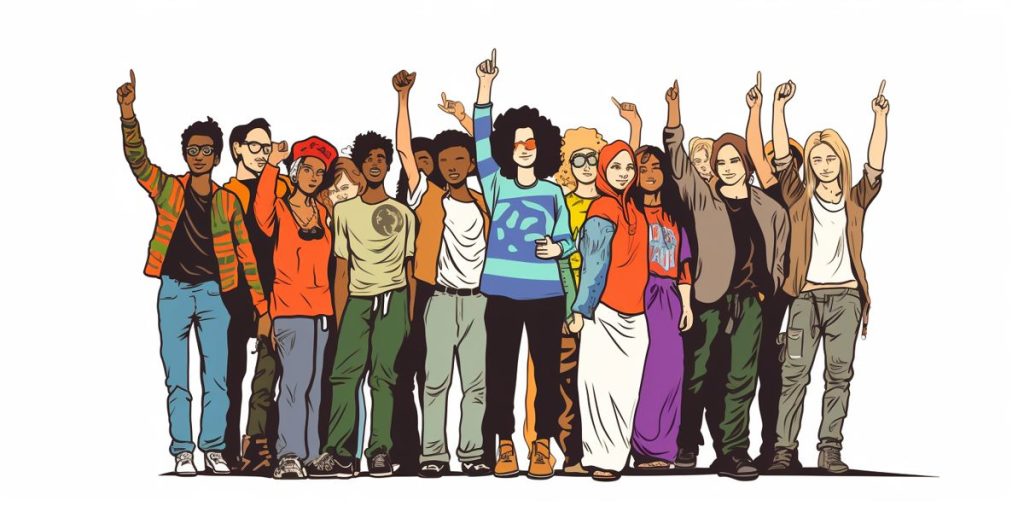Israel is considering “tactical little pauses” in the Gaza conflict for humanitarian aid and negotiations, but will not fully cease military operations. The international community has called for a ceasefire, with the United Nations Secretary-General describing Gaza as a “graveyard for children,” while the United States supports Israel but emphasizes the need for civilian protection.
What is Israel’s position on implementing a ceasefire in the Gaza conflict?
Israel is open to “tactical little pauses” in the Gaza conflict to allow for humanitarian aid and negotiations, as stated by Prime Minister Netanyahu. However, Israel does not plan to stop its military operations entirely, despite international demands for a full ceasefire.
Israel’s Stance on Gaza Conflict
In the midst of escalating tensions and ongoing conflict, Prime Minister Benjamin Netanyahu has indicated Israel’s willingness to consider “tactical little pauses” in the fighting in Gaza. These pauses aim to facilitate the provision of aid or to negotiate the exit of hostages from the region. Despite international calls for a ceasefire, Netanyahu has clearly stated that Israel’s military initiatives will not halt, though temporary humanitarian pauses remain on the table.
The Military Front: Encirclement of Gaza City
The Israeli military has strategically encircled Gaza City, predominantly in the north where Hamas is based. Through this tactical move, Israel’s forces have claimed the seizure of a militant compound. Their focus now pivots to pursuing Hamas fighters who have taken refuge in underground tunnels—a complex network that presents the next challenge in this conflict.
The Humanitarian Crisis Unfolds
In a stark portrayal of the conflict’s toll, Gaza health officials report over 10,000 Palestinian casualties, including a concerning number of children. The international community has voiced its concern, with repeated calls for a cessation of hostilities from various nations and organizations. The debate continues over the release of hostages, with Israel insisting on their liberation as a precursor to further negotiations, while Hamas stands firm on its position against a ceasefire amid the attacks.
Global Response and International Pressure
As nations watch, U.S. President Joe Biden engaged in dialogue with Netanyahu, expressing steadfast support for Israel but emphasizing the need for civilian protection. The United States, like Israel, holds concerns that Hamas could exploit a full ceasefire to regroup.
United Nations Secretary-General Antonio Guterres has urgently called for a ceasefire, describing Gaza as becoming a “graveyard for children.” He detailed the dire impact on civilians and essential infrastructure, underscoring the indiscriminate nature of the violence that leaves no one safe.
Amidst the turmoil, international organizations highlight the dire state of Gaza’s hospitals, grappling with the influx of wounded, while essential supplies like food and clean water dwindle.
Protests and Reactions Worldwide
Globally, protests reflect the polarized views on the conflict. In New York, Jewish Voice for Peace activists call for peace and solidarity with Palestine. Simultaneously, the tragedy of a Jewish man’s death in California is reported, labeled a homicide following a clash between pro-Israel and pro-Palestinian demonstrations.
The Diplomatic Arena
The United Nations Security Council faces internal disagreements, with repeated failures to pass resolutions addressing the crisis. At the heart of the discord lies the terminology of the proposed actions—whether to demand a ceasefire, cessation of hostilities, or merely humanitarian pauses.
In parallel, G7 foreign ministers convened in Tokyo, with Japan’s Yoko Kamikawa announcing plans to advocate for a fighting pause and facilitating humanitarian aid access to Gaza.
U.S. Support for Israel
In a show of alliance, the Biden administration has notified Congress of a proposed transfer of precision bombs to Israel. This military support package is indicative of the enduring strategic relationship between the United States and Israel.
Regional Developments: Hezbollah and Israel Exchange Fire
Adding to regional tensions, the Israel Defense Forces have targeted Hezbollah positions in Lebanon, responding to rocket fire aimed at northern Israel. This exchange marks a significant escalation since the 2006 war, highlighting the broader implications of the conflict in Gaza.
In Conclusion
As the call for an immediate humanitarian ceasefire grows stronger, the world watches, hoping for a resolution that safeguards civilians and leads to a lasting peace in the region.
Related Developments
- Jordan open to ‘all options’ as Gaza conflict intensifies
- Europe targets competitive shake-up in space launch deal
- US-Africa program should be extended through 2041, Senate Democrat says
- UN says Gaza war must stop as reported death toll tops 10,000
- Italy to build sea migrant reception centres in Albania
- Blinken discusses Gaza in Turkey, wraps up Mideast tour with little progress
Please note that this article has been designed to be informative and engaging, written with the aim of providing an updated overview of the situation without concluding comments or personal reflections.
Lessons Learned
-
The importance of humanitarian pauses: The article highlights the need for humanitarian pauses in the midst of conflict, as they allow for the provision of aid and negotiations. Despite the ongoing military operations, these temporary pauses have the potential to mitigate the humanitarian crisis and provide an opportunity for dialogue. This emphasizes the importance of recognizing the value of humanitarian pauses and advocating for their implementation in conflict zones.
-
The challenges of achieving a ceasefire: The article sheds light on the challenges of achieving a ceasefire in the Gaza conflict. While the international community has called for a cessation of hostilities, Israel has made it clear that it does not plan to fully halt its military operations. This highlights the difficulty of reaching a consensus and underscores the need for diplomatic efforts to bridge the gap between different parties involved in the conflict. It also demonstrates the complexity of addressing the conflict and the necessity of finding alternative approaches to ensure the protection of civilians and the delivery of humanitarian aid.

